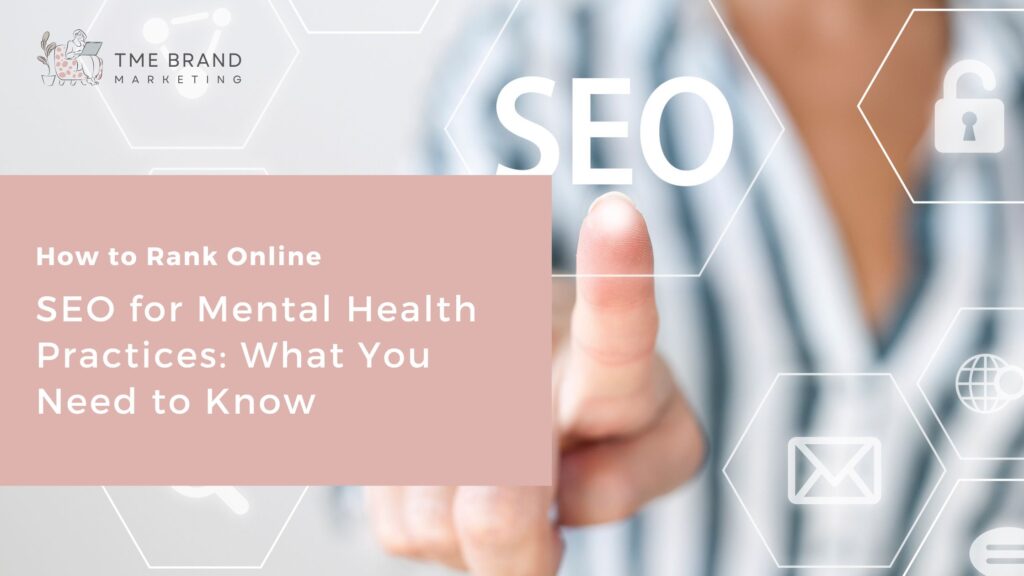SEO for Mental Health Practices: What You Need to Know
Hey there, therapists and practice owners! If you’re looking to boost your online presence and attract more clients, understanding search engine optimization (SEO) is a game-changer. Whether you’re teaming up with an SEO agency or going the DIY route, knowing the different types of SEO is essential for making your practice shine online. Let’s dive into what you need to know and how to stay ahead of the curve.
Recognizing the need to include SEO as part of your marketing strategy is important; conquering it is another thing. Fortunately, you don’t have to face this challenge alone. TME Brand Marketing is here to support you optimize your online presence for search results. We put together a guide to give you an overview of the different aspects of SEO you can incorporate into your strategy:
SEO: Still a Big Deal
You might be wondering if SEO is still relevant with all the changes in digital marketing. The short answer? Absolutely. SEO is as crucial as ever. It’s like the foundational tool in your marketing toolkit that helps you stay visible and credible.
SEO, or search engine optimization, enhances your website’s visibility on search engines like Google, helping you rank higher in search results. It’s essential for attracting potential clients searching for mental health services, as it builds your credibility and authority online. Implementing SEO effectively can lead to sustainable growth and cost-effective lead generation for your private practice.
Why SEO Matters for Your Practice
So, what’s in it for you? Let’s break down three major benefits of SEO for your mental health practice:
-
Building a Strong Brand Identity Picture this: Someone in your area searches for “best therapist near me,” and your practice pops up at the top of Google’s search results. This kind of visibility doesn’t just make you look good; it builds trust and credibility. When people see your practice listed first, they naturally assume you’re the best in the business. This strong online presence helps cement your brand identity, making you the go-to expert in mental health services.
-
Sustainable Long-Term Growth Think of SEO as planting a garden. It takes time, patience, and effort, but the results are worth it. Once your practice starts ranking high in search results, maintaining those rankings becomes easier. Plus, a solid SEO foundation supports all your other marketing efforts, amplifying their impact. Whether it’s social media ads, email marketing, or influencer partnerships, everything works better with good SEO backing it up.
-
Cost-Effective Lead Generation Sure, SEO requires an initial investment, but it’s a lot more cost-effective than constantly shelling out for ads. Once your website is ranking well, you’ll attract leads organically without spending a fortune. This means more potential clients finding you through their searches, reducing your customer acquisition costs over time.
Need help with your website?
SEO: A Long-Term Strategy
SEO isn’t a quick fix; it’s a marathon, not a sprint. It’s about building a sustainable online presence that can weather changes in search algorithms and grow stronger over time. Every piece of quality content you publish adds to your visibility, making it easier for potential clients to find you. Techniques like guest posting and building quality backlinks further enhance your rankings, ensuring your practice stays relevant.
That said, balancing SEO with other marketing strategies is crucial, especially if you need quick results. SEO offers long-term benefits, but it might not provide immediate wins if you’re just starting out and need rapid growth.
The Types of SEO You Need to Know
Let’s break down the different types of SEO and why they matter:
-
On-Page SEO: This is all about optimizing the elements within your website. Think content, site speed, keywords, title tags, and descriptions. On-page SEO is vital for increasing traffic and brand recognition.
-
Off-Page SEO: These are strategies that happen outside your website, like blog commenting, guest posting, and social networking. Off-page SEO helps boost your site’s authority and trustworthiness in the eyes of search engines.
-
Technical SEO: This involves fixing technical issues like broken links, crawl errors, and security problems. Improving the technical aspects of your website enhances user experience, which is a big factor in Google’s ranking algorithm.
-
Local SEO: If your practice has a physical location, local SEO is a must. It helps you show up in local search results, driving more traffic to your practice. Claiming and optimizing your Google My Business profile is a critical part of this.
-
White Hat SEO: These are ethical strategies that comply with search engine guidelines, like building backlinks and creating diverse content. They help your site rank better without risking penalties.
-
YouTube SEO: Optimize your videos with relevant keywords, titles, and descriptions to leverage YouTube’s massive search potential. High-quality, engaging videos can drive significant traffic to your site.
-
Voice Search SEO: With more people using voice search, optimizing your site for natural, conversational keywords is essential. Think about how people ask questions and ensure your content provides clear, concise answers.
Keeping Up with Google’s AI Updates
Google’s recent AI-generated summaries at the top of search results are changing the game. This new approach, known as generative engine optimization (GEO), requires you to focus on being a trusted authority with well-cited, concise information. Interestingly, younger audiences are turning to Instagram and TikTok for searches, so maintaining a diverse online presence is crucial.
Adapting Your Marketing Strategies
Despite Google’s push towards AI, it values genuine, human-created content the most. This shift is prompting some businesses to revisit traditional advertising methods, highlighting the importance of a multi-faceted marketing strategy.
Wrapping Up
For mental health private practices, SEO is an indispensable tool for building a strong online presence, fostering sustainable growth, and generating cost-effective leads. By understanding the different types of SEO and staying updated with the latest trends, your practice can thrive in the digital world.
Remember, SEO is a long-term investment that requires patience and consistent effort. Combine it with other marketing strategies for the best results, and you’ll see your practice grow steadily over time. Happy optimizing!
If you need help updating your website, contact us today.



